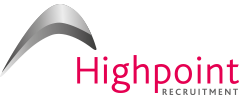Social Media Tips For A Successful Job Search
Social media is a great tool for communicating with peers but it can also become an “Achilles heel” when you start your job search.
Would you want your future employer to be aware of everything you do in your leisure time; your social habits and what your journey in life has entailed? Your digital footprint could be something that prevents you being short listed for an interview or from receiving a job offer – few people think of this when posting pictures or comments on Facebook, Twitter and Instagram. What seems fun, perhaps a little revolutionary whilst you are at College or University may have ramifications in the future.
Take the case of Paris Brown who was appointed as the UK’s first Youth Police and Crime Commissioner. She was forced to resign within days of being appointed after the press researched her background as part of the publicity surrounding her appointment.
Miss Brown was described as an “enthusiastic young woman with exceptional skills” who had performed well in a “very tough” interview process. She was appointed at the age of 17 but the research unearthed Twitter posts she made between 14-16 years of age which were described as racist and homophobic, something she denied represented her genuinely. She added: “I have fallen into the trap of behaving with bravado on social networking sites. I hope that this stands as a learning experience for many other young people.”
Your anonymity is not spared when posting on social media channels and it is worth thinking “would I take an advert in the press or write a letter to the editor with my comments if the subject matter is particularly controversial”.
The danger of Facebook, Instagram and Twitter posts that are made in the moment; people often forget and would likely regret putting up comments or some images. Photographs of your antics as a student might not reflect the person you are today, the person who is applying for their 1st job, Graduate Placement Scheme or Apprenticeship. Indeed even further along your career path your history can be researched.
There are mixed views amongst HR Professionals and Recruiters about researching candidate social media profiles. That said, it is a regular occurrence for Line Managers involved in the interview process to research interviewees.
If you are starting a search for your first job or a new position, in terms of your career journey I would recommend the following:
Consider the reaction you received to posts and how this may affect your future employment chances. Close the account if you think the content could be considered as contentious and is not a true reflection of your current views.
Look at the content but most importantly look at all the photographs you have posted. My advice is to change your privacy settings and most importantly ensure that you can’t be tagged into photographs.
Review what you have posted and also if there is a positive trend about your postings be confident to discuss at interview it if is raised.
Not something we have talked about much but make sure the dates and educations seats reflect what appears on your CV and MOST IMPORTANTLY the employment dates match the dates on your CV.
Professional Image
If you are going to have an open profile on social media it is essential to have a professional profile picture. Your picture should reflect the audience. A picture you might have chosen at University or College to reflect your fun, party animal self is not the image or profile a future employer would look for, so no “tied to lamp posts”, “wedged into shopping trolleys”, “partying on tables”, “beach bar bikini” or “just out with the girls”! shots. Portray yourself as you would want a future employer to see you.
Finally. Do I review the social media profiles of every candidate I interview? The answer to this is No. I want to interview an individual as a blank canvass. However, many hiring companies use this as a tool in their short listing process and I would also say that if I have question marks I go straight to social media and nearly always check LinkedIn Profiles to check employment dates and employers reflect a candidate’s CV after I have conducted my interview.
7 Quick Tips
- Post an appropriate photograph
- Set the privacy settings so you can’t be researched on Facebook.
- Review images on Facebook and Instagram. Close the accounts if appropriate.
- Twitter – check your Tweets. Close the account if you don’t think they reflect your current views and might jeopardise your future career.
- Set up an email address specifically for your job search.
- Mobile Voicemail – is your message clear and professional.

